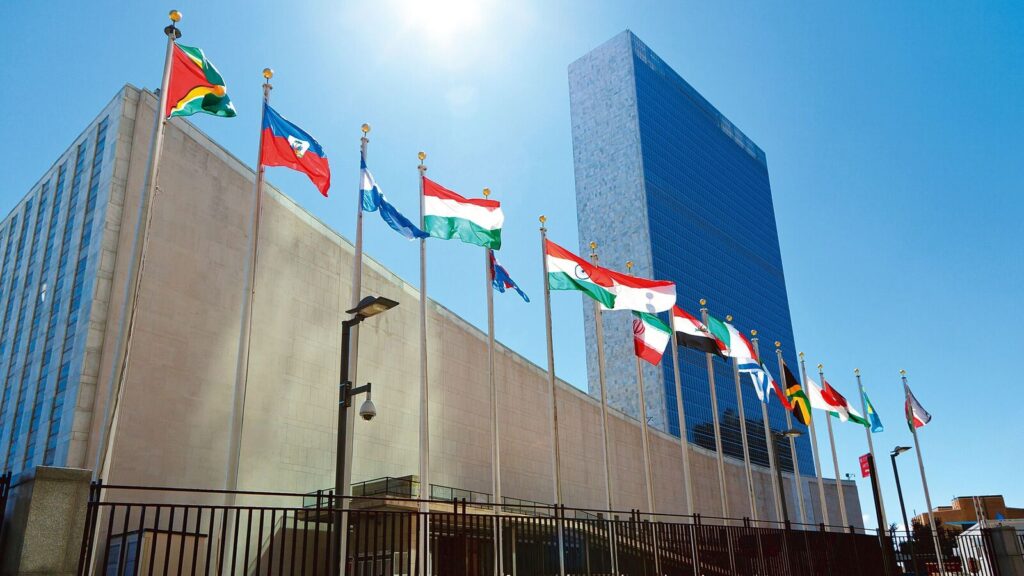Donald Trump has sought to dismiss Signalgate as “the only glitch” in his two months as US president for the second time. But this will not wash with others around the world. Indeed, not even in the US. Even more bizarre than the accidental inclusion of a publication’s editor in a Signal chat on a plan for military action overseas is the fact of social media being used for the purpose.
This apparently casual approach to the operation—strikes aimed at Houthis in Yemen—stands in contrast to the gravity with which US armed forces would presumably have treated it. According to the journalist in question, Jeffrey Goldberg, editor-in-chief of the Atlantic, the Signal group had America’s top-most security officials as participants.
Also Read: Devina Mehra: Trump stocks? They’re mythical at best in this new era of uncertainty
Whatever Americans make of it, to the rest of the world, the revelation signals a deep malaise—a cavalier outlook on matters of life and death. As reported, emojis like the fist-bump, fire and high-five (or folded hands) populated the chat.
Taken alongside a hardening trend of America ignoring the principles of multilateralism, this does not bode well for other countries. No matter what the US does, we could all be impacted. It is not for nothing that a figure was bandied about of just 3% of US trade passing through the Red Sea. Washington would rather have Europe pay for this sea-lane’s security, as the latter’s shipments depend far more on it. India is also heavily reliant on it for trade. Estimates say 24% of Indian exports and 14% of imports flow through this route. So any attempt to keep it free of militant disruptions is welcome.
Also Read: India’s confidence in gaining from Trump’s trade distortions is misplaced
If only the use of such firepower had international sanction. Although abused, belittled and frequently ignored, the United Nations’s (UN) approval matters. The Gulf War of 1991 ordered by George H.W. Bush followed UN protocols and was successful in rolling back Iraq’s invasion of Kuwait. But the war on Iraq ordered by his son George W. Bush after 9/11 lacked the same legitimacy and ended in confusion, controversy and calls for war-crime trials. In fact, it led to a spiral of insurgencies and terrorist attacks across the world.
The rules-based system put in place after World War II was devised for a purpose: To prevent the return of conditions that led to that horror. Countries with mutually beneficial trade relations, it was argued, would not go to war against each other. So fair rules of trade were part of that package. Moreover, in both theory and practice, international affairs going by a clearly laid-out framework tend to favour developing countries. After all, it costs global powers little to tear up the rulebook, simply because they can.
The US shift has therefore left emerging markets like India facing a fundamental dilemma: should they follow suit and withdraw too, or should they continue to engage—perhaps even more robustly—with the rules-based system?
Also Read: Barry Eichengreen: Trump is taking aim at the IMF, World Bank and US Fed
At the end of the day, every country relies on international cooperation and rules to some degree, even if on a selective basis. We may bristle at the World Trade Organization’s inefficiency and perceived bias. But it beats having to suffer the storms whipped up by the vagaries of a single office. Without the UN, how would we tackle any ‘tragedy of the commons’?
Above the globe’s surface, we have climate change. Below, we have exploitation of deep-sea resources. Only global pacts can stop a free-for-all plunder of the planet. Let’s face it: multilateralism cannot be abandoned without putting the world’s peace and prosperity at risk.
Source:https://www.livemint.com/opinion/online-views/donald-trump-signalgate-us-president-signal-chat-military-action-yemen-security-officials-jeffrey-goldberg-multilateral-11743000509707.html

